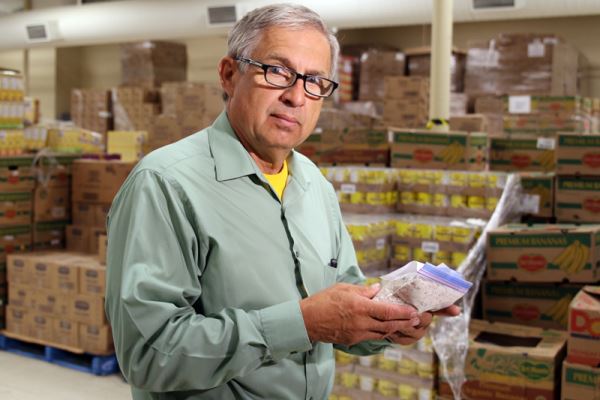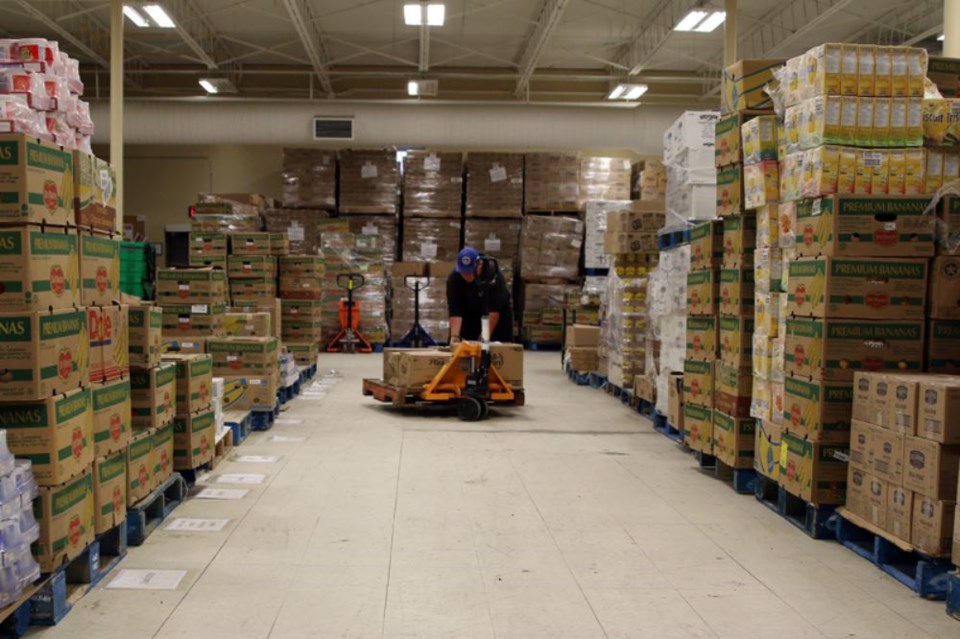THUNDER BAY – The Regional Food Distribution Network’s 9,000-square-foot warehouse is stacked with cases of non-perishable food but its fridges are nearly empty.
The annual summer donation lull has begun for the team of mostly volunteers who help feed Northwestern Ontario’s food-insecure population but this year, fruit and vegetable donations have particularly dropped off.
“It’s quite typical for this time of year as people are vacationing and those types of thing. The focus is no longer on that kind of giving,” said RFDA executive director Volker Kromm.
“Our demand stays the same right through the summer. In some cases, it actually increases. We’re seeing a drop in giving and we’re suffering.”

Kromm said the RFDA is welcoming long-lasting, durable fruits like apples and oranges as well as early-season vegetables like rhubarb, tomatoes and peas. Its summer “grow a row” campaign urges local gardeners to consider putting a section of the garden aside for donation.
The association has an on-site kitchen where volunteers prepare soups and sandwiches for clients of Shelter House, Grace Place and the Salvation Army soup truck. If the trend isn't reversed, the donation reduction could have a ripple effect through those services.
Corporate donations can provide the RFDA with a base for families who need hampers but they tend to be restricted to what Kromm calls the “top 10 staples,” including canned meats and cereals. Krom said a region-wide lack of fresh produce is not only hurting health but is infringing on rights.
“Everyone is entitled to have access to affordable, healthy food,” Kromm said.
“We struggle with some of the remote communities and some of the regional communities that don’t have access to affordable food. If you go to some of the outlets in the far north, you’ll find the cost is prohibitive and people cannot afford to buy.
“There are direct health outcomes because of that. We’re trying to change that.”
Sign in or register
- Messages
- Post a Listing
- Your Listings
- Your Profile
- Your Subscriptions
- Your Likes
- Your Business
- Support Local News
- Payment History
Registered Users
Already have an account?
New Users
Create a free account.
